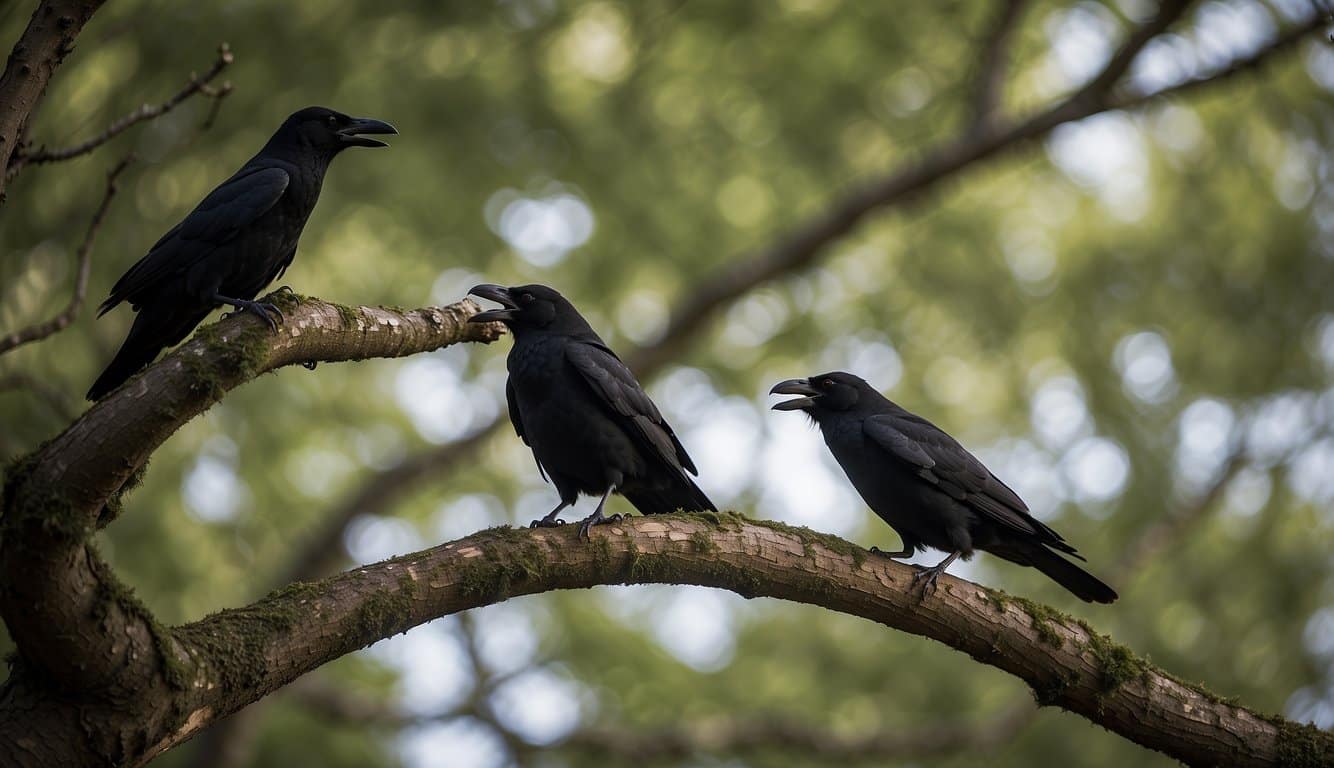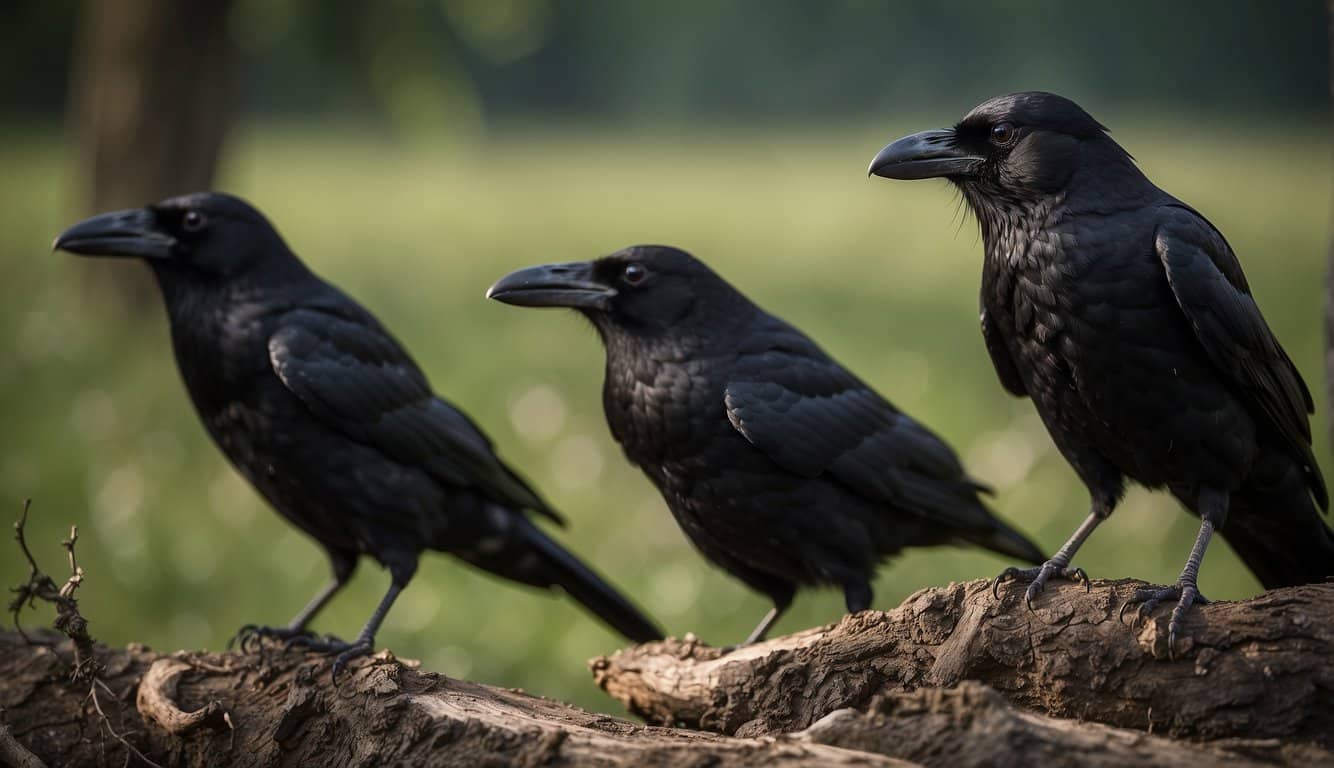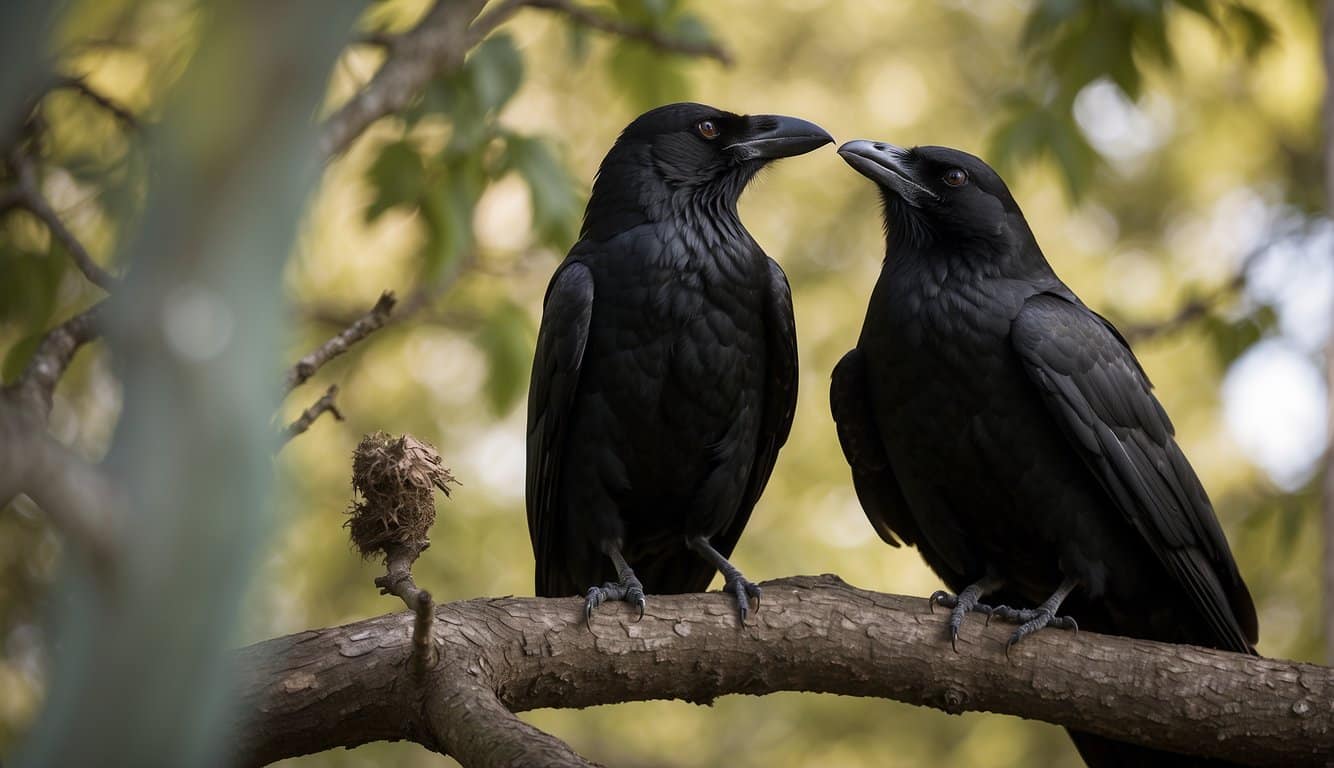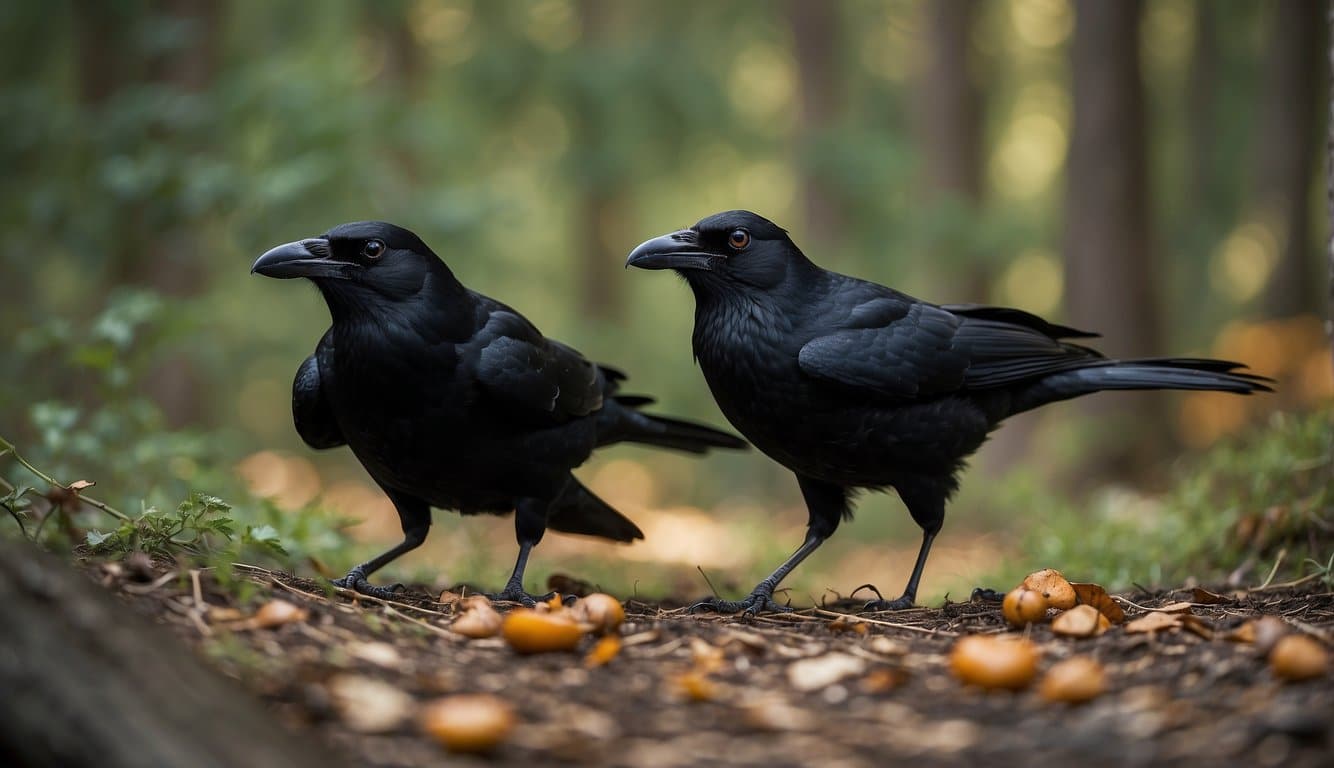| Question | Do Crows Eat Other Birds? |
|---|---|
| Answer | Yes, occasionally. |
| More Info |
|
Crows, with their distinctive black plumage and intelligent gaze, have captivated human attention for centuries. Members of the Corvid family, these birds are recognized for their remarkable intelligence and adaptability in various environments.
Their diet is incredibly diverse, consuming a wide array of food items from seeds and nuts to insects and small animals.
Observations and studies suggest that crows are indeed opportunistic omnivores, which sometimes includes the consumption of other birds and their eggs. This behavior is not their primary source of nourishment but rather a supplemental choice when other food sources are less available.

Due to their opportunistic nature, crows can occasionally be observed preying on smaller birds and raiding nests for eggs. These instances tend to occur more frequently when environmental conditions are challenging or food competition is particularly fierce.
Understanding the frequency and circumstances of crows preying on birds can offer insights into their role in local ecosystems.
Their impact on bird populations is one of several factors that inform broader ecological studies, which seek to balance often misunderstood behaviors of such species within the context of their environments.
Key Takeaways
- Crows are omnivorous and sometimes consume other birds or eggs.
- Predatory behavior in crows toward other birds occurs under specific environmental conditions.
- The impact of crows on bird populations is a complex ecological consideration.
Crows’ Diet Overview
Crows exhibit a wide array of dietary habits, which are both varied and opportunistic. The following content expands on their nutritional needs and predatory behaviors in detail.
Nutritional Needs
Crows are omnivorous birds with a diet that includes a range of foods to meet their nutritional requirements.
- Seeds, nuts, and grains: For carbohydrates and fats
- Fruits and berries: A source of vitamins and natural sugars
- Insects (such as beetles, grasshoppers, and caterpillars): Provide protein
- Small mammals and carrion: For protein and fat
- Human food leftovers: They often scavenge in populated areas for additional sustenance
Predatory Behaviors
In regards to other birds, crows may sometimes engage in predatory behavior. They are known to:
- Hunt young birds such as hatchlings and fledglings
- Prey on vulnerable birds that are sick, injured or trapped
- Steal eggs from nests of other bird species
Their hunting methods vary, and while they can catch birds in flight, it is less common than targeting those unable to fly or escape effectively.
Crows Preying on Birds
Crows have a reputation as resourceful feeders that occasionally consume smaller birds. This behavior has implications for bird populations and ecosystem dynamics.
Common Prey Species
The avian diet of crows typically includes:
- Smaller passerines such as sparrows
- Bird eggs and nestlings, making them a considerable threat during the breeding season
Hunting Techniques and Strategies
Crows employ various tactics to catch and consume their avian prey, such as:
- Opportunistic Hunting: They take advantage of vulnerable birds, especially those that are sick, injured, or young.
- Stealth and Surprise: Crows often approach nests quietly to avoid detection by parent birds.
Factors Influencing Predation
When examining why crows may prey on other birds, it’s essential to consider environmental and seasonal factors that drive these behaviors.
Habitat and Distribution
Crows occupy a wide range of habitats, from dense forests to urban areas.
- Location dictates the availability of prey and the likelihood of crows predating on other birds.
- For instance:
- Forested Areas: Here, smaller birds and their nests are abundant, providing crows with opportunities to feed on eggs and nestlings.
- Urban Environments: Crows in urban settings may have less access to traditional wild prey and thus may target other birds more frequently when other food sources are lacking.
Seasonal Dietary Changes
Crows alter their diet with the changing seasons, which can influence their predatory behavior:
- Spring and Summer: Availability of various food sources such as insects and fruits reduces the need to prey on other birds.
- Autumn and Winter: During colder months, when these resources are scarce, crows may increase predation on other birds to supplement their diet. It’s not just about availability, but also about the energetic needs during harsher conditions.
Impact on Bird Populations
Crows have a complex relationship with other bird species in their ecosystems. Their feeding habits can have both positive and negative effects on bird populations.
Ecological Role of Crows
Crows are opportunistic feeders known for their diverse diet, which sometimes includes preying on other birds. Despite this predatory behavior, crows play a vital role in maintaining ecological balance.
They often scavenge dead animals and consume pest species, which helps to control those populations.
By preying on the weak or sick members of bird populations, crows can also contribute to the natural process of selection, potentially strengthening the overall health of prey bird species.
Conservation Concerns
Conservationists express concerns when it comes to the impact of crows on other bird species, specifically in areas where native birds might be vulnerable or endangered.
The predation of crows on eggs and nestlings may pose a threat to these sensitive populations. In some instances, crows might contribute to the decline of certain bird species, particularly:
- Island birds, which often have limited ranges and populations
- Ground-nesting birds, which are more vulnerable to predation
Frequently Asked Questions
In examining the interactions between crows and other birds, they have revealed several intriguing behaviors, particularly regarding their feeding habits. This section explores common inquiries regarding crows’ predatory and scavenging actions.
Do crows consume eggs from the nests of other bird species?
Yes, crows do consume eggs from the nests of other birds. They are opportunistic feeders and will take advantage of unguarded nests to feed on eggs.
Are young birds at risk of crow predation?
You bet! Young birds are indeed at risk of crow predation. Crows frequently prey on nestlings and fledglings, which are more vulnerable due to their underdeveloped ability to fly and escape predators.
Can crows exhibit aggressive behavior towards other nesting birds?
Yes, they can. Crows can exhibit aggressive behavior towards other nesting birds. They may attack adult birds, particularly during the nesting season, to reduce competition for food and territory or to predate on their young.
Which specific bird species are commonly targeted by crows?
Crows commonly target smaller and defenseless bird species. This often includes canaries, finches, pigeons, sparrows, doves, and even hummingbirds, depending on the opportunity and region.
Is predation on pigeons a behavior observed in crows?
Yes, it is. Crows have been observed preying on pigeons, especially when they are sick, injured, or if their young are left unprotected.
Do crows engage in scavenging behavior with carcasses of birds?
Crows engage in scavenging behavior. They will feed on the carcasses of birds. Their omnivorous diet allows them to consume carrion as a part of their varied feeding habits.



